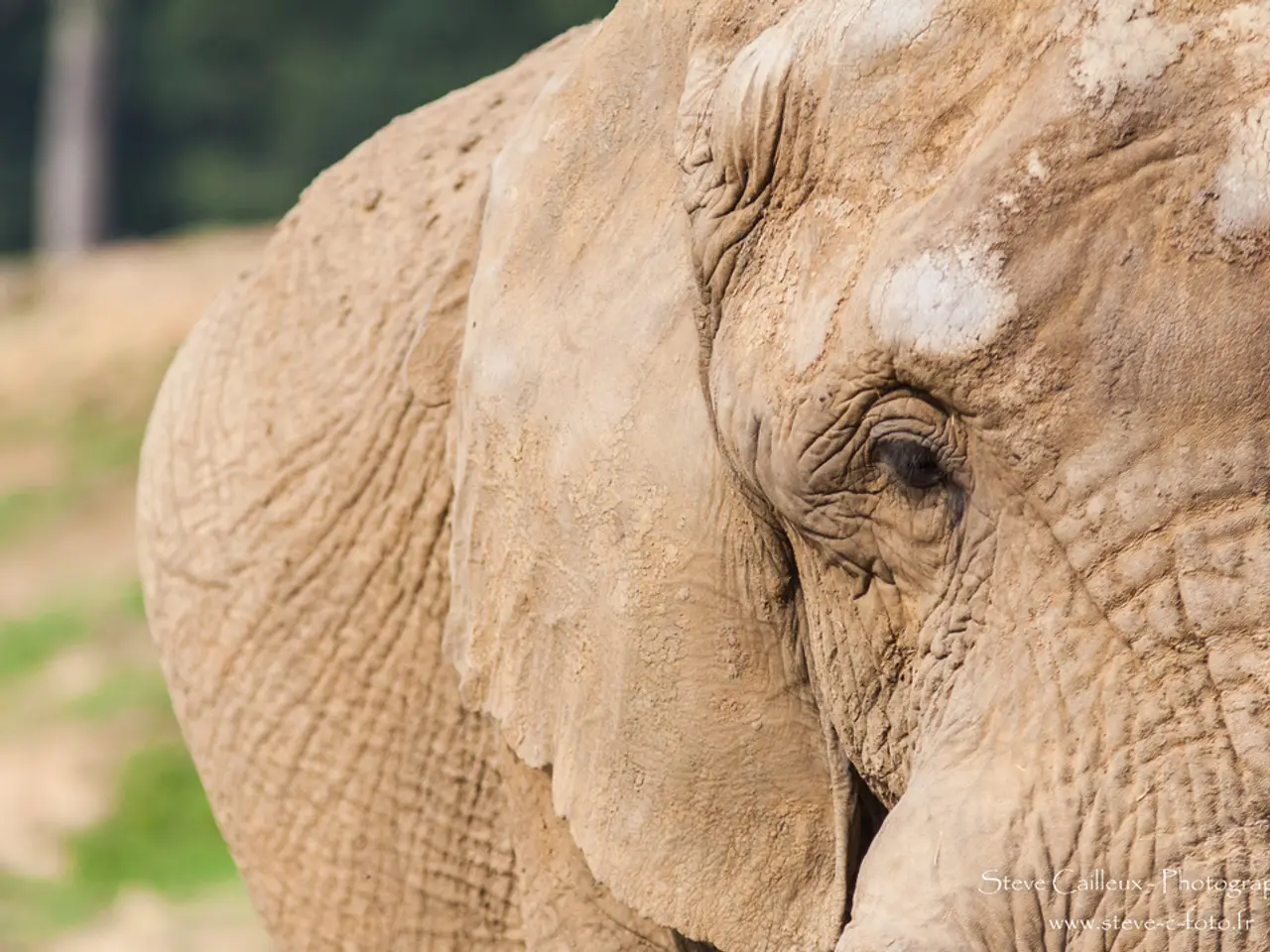World Animal Protection Proposes Elephant Retirement in Jaipur on World Elephant Day
In the heart of India, the issue of captive elephants has been a contentious topic for over two decades. Originally intended to be addressed over a decade ago to improve elephant wellbeing and curb the illegal trade in live elephants, the captivity of these majestic creatures continues to cater to the needs of tourists who consider riding them as a status symbol.
The captive elephants in Jaipur, primarily used for human entertainment at Amer Fort and Haathi Gaon, have been subjected to cruelty and abuse, with new animals being introduced that appear to be of wild origin. It has been documented that elephants in Jaipur have been beaten with bullhooks to force them to perform for tourists.
Gajender Kumar Sharma, Country Director of World Animal Protection in India, emphasises the need to initiate a conversation to retire the captive elephants used for riding and entertainment purposes in Amer Fort and Haathi Gaon. Sharma's email is [email protected], and his mobile phone number is 9313333283.
Research documents by the Animal Welfare Board of India and Project Elephant of the Ministry of Environment and Forests suggest that phasing out the elephant ride spectacle at Amer Fort in Jaipur is in the best interests of the elephants. The plight of captive elephants in Jaipur needs to be addressed to consider the holistic needs of the animals, mahouts, and elephant owners.
World Animal Protection continues to advocate for the retirement of approximately 80 elephants in captivity at Amer Fort and Haathi Gaon in Jaipur and Rajasthan. The phasing out of elephant rides in Jaipur can enhance the international status of Jaipur as a UNESCO World Heritage City.
Rising awareness among tourists, including overseas tourists, is against captive wildlife in entertainment venues. The practice of riding elephants contributes to the perpetuation of animal cruelty and the stereotype of India as a land of exotic wild animals.
World Animal Protection has a set of standards for the maintenance of captive elephants in well-maintained sanctuaries. Many organisations around the world work to transfer captive elephants to such sanctuaries where they can live in a more natural environment without the stress of performing.
As the issue of captive elephants in Jaipur becomes part of standard conversation on environmental issues and beyond, it's crucial to continue raising public awareness about the welfare issues associated with keeping elephants in captivity for entertainment. This can lead to increased support for sanctuaries and legislative changes.
For specific information about Amer Fort and Haathi Gaon, it might be helpful to contact local animal welfare organisations or government agencies involved in wildlife conservation in Jaipur. World Animal Protection renews its calls for the retirement of approximately 80 elephants in captivity at Amer Fort and Haathi Gaon in Jaipur and Rajasthan.
As stated in the World Elephant Day message, elephants belong in the wild, where they roam free with their kin. Let's work together to ensure a better future for these magnificent creatures.
- In light of the documented cruelty towards captive elephants in Jaipur, it's important to raise awareness not only in environmental-science and animal-welfare circles but also in the lifestyle and travel sectors about the need to phase out elephant rides and improve the wellbeing of these majestic creatures.
- As World Elephant Day approaches, promoting the standard practice of transferring captive elephants to well-maintained sanctuaries becomes a significant aspect of both environmental-science and travel initiatives, with the ultimate goal of ensuring a better future for elephants and upholding the international status of cities like Jaipur as UNESCO World Heritage sites.




